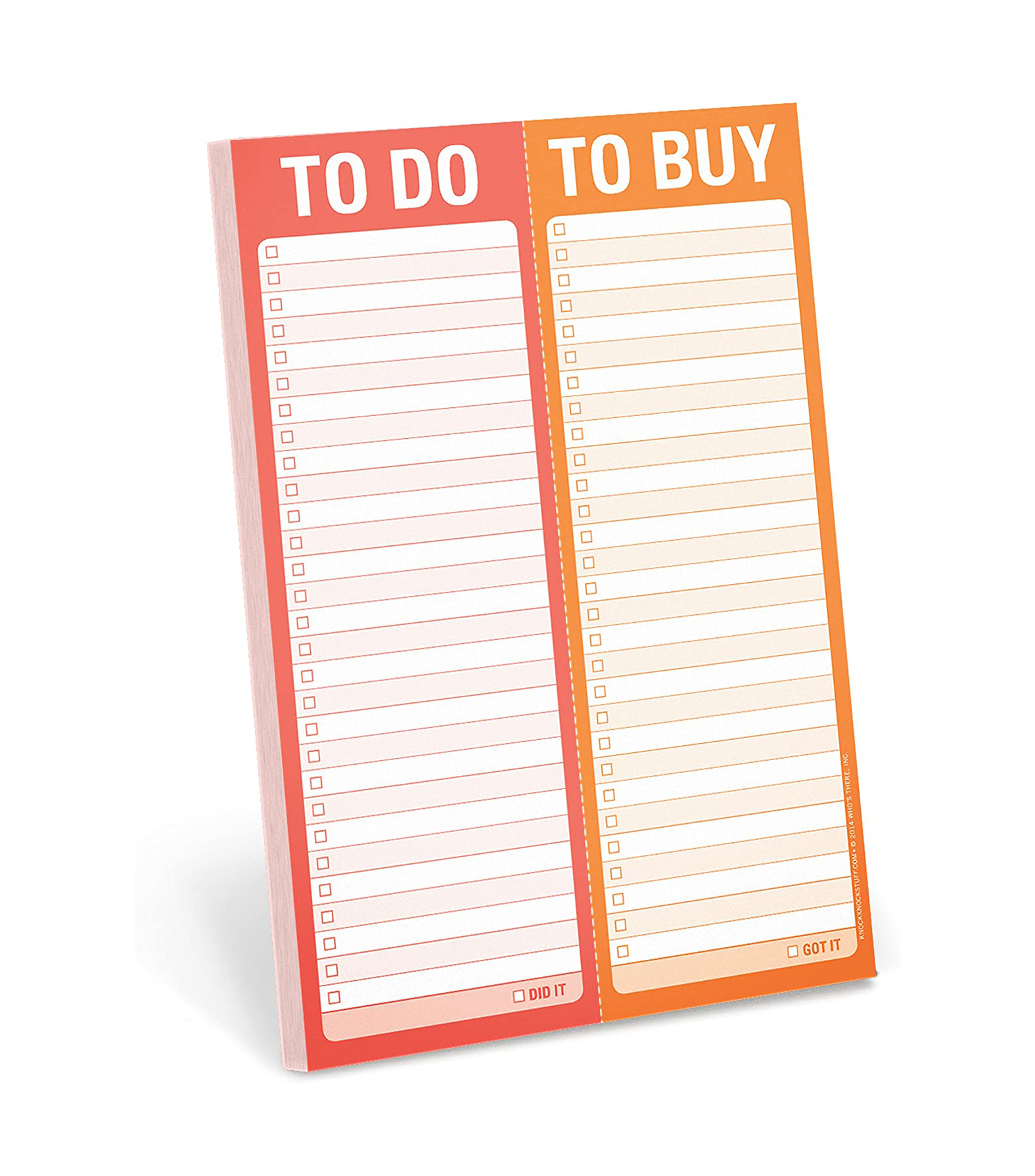Why Setting Boundaries During the Holidays Is So Important—And How to Do It

Feeling overwhelmed right about now? It's never too late to set some boundaries. In fact, they might just save the holiday season for you. "Setting boundaries is always an important practice but especially during the holiday season," explains Chief Therapy Officer at Real, Rachel Hoffman, LCSW, PhD. "Aside from potentially seeing people or returning to places that trigger stress, the holiday time is a period of personal reflection leading up to the new year. It can be difficult if you are not in the place in your life where you thought you would be. It is especially difficult this year as we're living through an ongoing pandemic, witnessing a tremendous amount of destruction, and experiencing collective grief. Many people are also readjusting to socializing with others in person instead of through a screen or phone."
Hoffman says boundaries are the way to navigate challenging situations. Not only that, but they can also help reduce anxiety.

You can create boundaries for all areas of your life, not just your relationships. "For some, the holidays represent a time of giving to others," says Andreas Michaelides, PhD, chief of psychology at Noom. "During this time, it can become easy to give so much that we forget to take care of ourselves. That's why boundaries are so important—they help to make sure we are taking care of ourselves physically, emotionally, and financially."
Want to set some boundaries this season but don't know where to start? The experts shared some tips below.
1. Get in the Right Headspace

"You deserve to prioritize feeling healthy, which includes being in the right headspace," Hoffman says. "That is a key motivator in setting boundaries." It helps to remind yourself that taking care of your mental health is so important.
2. Think About What You're Worried or Nervous About

Hoffman suggests thinking about some of your worries—are you worried about not being able to afford presents for the gift exchange? Maybe you're anxious about getting together with relatives and someone bringing up sensitive topics. Or you might feel that getting together with friends can drum up some feelings of inadequacy or comparison.
"First, acknowledge that whatever you feel is valid. Try to communicate ahead of time in whatever way feels right for you," she says. "That might look like texting your friends that you would prefer to set a $20 cap for the gift exchange. It might look like having a phone conversation with your parents telling them that if politics gets brought up, you are going to excuse yourself from the room. If you are uncomfortable with communicating ahead of time, just try to create boundaries for yourself. Tell yourself that if certain topics get brought up, you will take a walk outside or go to the bathroom. You can also think about one family member or one friend that you can rely on for emotional support. Letting them know ahead of time about your worry can alleviate some of the stress."
3. Get Curious About Your Limits

"Strengthen your boundaries by reflecting on why they are needed. Questions you can ask yourself include: 'How is X interfering with my personal goals?,' 'How is X helpful or unhelpful to me?,' and 'What is prompting me to want to set these boundaries in the first place?' By becoming very curious, you will become better equipped to know your limits and institute boundaries," Michaelides says.
4. Create a List for Your Finances

Yes, creating boundaries also applies to your finances, too. And I think we all know how hard this time of year can be on our budgets. Chief People Officer and financial advocate at Credit Karma, Colleen McCreary, recommends creating a list and then making a plan from it. "Write down everyone you plan to buy gifts for this year, with a dollar amount next to their name. Some may get more, and some may get less, and there's no correct number," she says. "To help get to each of those numbers, you need to map out how much you have saved and/or plan to make in the near future that you want to set aside for gifts, and allocate that money. These numbers should be on your phone or a piece of paper you take shopping with you so you have a guide and don't overspend. A budget only works if you stick to it."
5. Communicate

Communication is key when establishing boundaries. Hoffman says maintaining your boundaries mostly requires it. "You may decide to preemptively communicate to friends or family about those boundaries ahead of time. This can reduce anxiety as they will be prepared with the guidelines you have set for yourself," she says. "You can also choose to set boundaries internally. This could look like telling yourself you will only stay for a certain amount of time at an event. Lastly, you can excuse yourself entirely. If you determine that excusing yourself is the best way to care for yourself that is empowering and justified."
7. Be Honest

Along with communication should be honesty, and that can be applied to every boundary, but it's especially helpful if you're trying to be extra mindful of spending this season. "If money is a source of stress among friends and family, you may be afraid to have a conversation about it. However, being as straightforward this holiday season will help set expectations from the start and may alleviate any uncomfortable conversations down the road," McCreary says. "Things like gifts for multiple people or paying high fees to travel might not be in the cards for you, so make that clear to those around you. When it comes to showing your appreciation for those close to you, think about how you can do so in ways other than money, like with your time."
McCreary acknowledges that talking about money can be awkward, but having open and honest conversations about money might even help strengthen your relationships. But you'll want to make sure you're broaching the topic when you're in the right time and place. "When it comes to sensitive topics like money, timing and location are everything," she says. "You don't want to bombard people as soon as they get home or are about to go to bed. Find somewhere that's comfortable for both of you."
8. Be Assertive and Direct

"One key to effective boundary setting is assertively setting your boundaries in a calm, simple, and direct way without shaming or blaming others," Michaelides says. "Remember, you always have the right to say no."
9. Practice Saying No

Preparing a script can come in handy. "This may be as simple as saying, 'No, thank you,' repeatedly or de-escalating the situation by telling a joke. The main idea is to come up with a plan ahead of time so you are not caught off guard," Michaelides says.
10. Realize You Can't Control Reactions

Sometimes you might not get the reception you hoped for when voicing your boundaries, and that's okay. "The first thing to recognize is that you cannot control the reaction of the other person. Your role is to communicate your needs in whatever way feels most comfortable for you," Hoffman says. "That could look like saying, 'I've been feeling anxious, so I might need to stay for only a few minutes.' It could also look like saying, 'I'm sorry I'm not feeling up to our plans today,' without providing any explanation. Although the other person might feel hurt or disappointed, communicating that boundary might be what's needed to help with your mental health. If the relationship has a level of security, then there may be room to discuss the situation more in-depth in the future."
11. Be Realistic

This also goes with the above—understanding you can't control people's reactions. "Be realistic with your expectations," Michaelides says. "Although it would be ideal for loved ones to help us feel understood and respected, this simply may not be possible due to strong differences. Try to keep your loved one's perspectives and limitations in mind. If a conversation seems to be hitting a difficult level, consider your goals, and decide if it's worth your energy to continue engaging."
12. Avoid Anything That Might Cause FOMO

If you are on a budget, McCreary suggests avoiding things that might cause FOMO (fear of missing out). "Comparison is the thief of joy—and money! If you're constantly comparing things like the gifts you received or the parties you attend to others, you may be tempted to overspend," she says. "Putting yourself in the red to keep up with others—whether you're seeing them in-person or on social media—may end up setting your finances backward, which isn't a great way to start the new year."
13. Avoid Impulse Shopping

All of the sales and deals and excitement of holiday shopping can really push you to get carried away and forget about your budget. McCreary recommends making a list and then sleeping on it, that way you can figure out what items you really need versus what items you just want. "Do your best to avoid buying something on a whim, especially if it's not on your list and doesn't fit within your budget," she recommends. "If there's something on your list that you want and is priced for more than you're able to afford, hold off on purchasing the item for now, because you may be able to find a slightly better deal down the road. If it's an item you need, determine if you're willing to risk losing out on it altogether or if it's worth spending a little more to ensure you actually get the product."
14. Do This When Someone Doesn't Respect Your Boundaries

There may be moments when people might not understand your boundaries, or even cross them. In these cases, Hoffman recommends re-evaluating your relationship with the person and the extent to which you want to work on the relationship itself. "If this is a relationship of importance to you, then I recommend having a conversation with that individual using assertive communication. This entails having a level of confidence and speaking with 'I' language, communicating how you felt as a result of that cross in boundary," she explains. "If this is an individual that continues to cross your boundary and the relationship itself does not feel worthwhile, I suggest distancing yourself from that person. You might choose to communicate that the relationship itself is causing you increasing anxiety and you are going to choose to step away from the relationship."
15. Reaffirm Your Boundaries

And if someone is testing your boundaries, you can remind that person of what they are by calmly reaffirming your limits and wishes, Michaelides suggests. He also says you can change the subject respectfully or even exiting the conversation entirely. "If someone tests or violates your boundaries, you have the right to exit the conversation, with or without explanation. You may say, 'I am going outside for some fresh air,' or simply leave the room," he says.
16. Have Empathy

"Boundaries can be tough to stick to, especially when someone you perceive to have power is the one crossing them. Have some empathy towards yourself when you do not stick to your boundaries and remind yourself that there is strength in recognizing that a boundary was even crossed," Hoffman says. "It is also helpful to recognize that implementing a boundary can take practice and time. Lastly, when you don't stick to your boundary, it is not a setback or a failure whatsoever. It is a learning experience. It is a chance to reflect on the situation to develop a better understanding of yourself, your boundary, and your relationship with the other individual."
Next: 8 Benefits of Gratitude and How to Practice It
This article is provided for informational purposes only and is not intended to be used in the place of advice of your physician or other medical professionals. You should always consult with your doctor or healthcare provider first with any health-related questions.
Sarah is lifestyle writer and editor with over 10 years of experience covering health and wellness, interior design, food, beauty, and tech. Born and raised in Los Angeles, she attended New York University and lived in New York for 12 years before returning to L.A. in 2019. In addition to her work atBest Knockoff Luxury Clothing , she held editor roles at Apartment Therapy, Real Simple, House Beautiful, Elle Decor, and The Bump (sister site of The Knot). She has a passion for health and wellness, but she especially loves writing about mental health. Her self-care routine consists of five things: a good workout, “me” time on the regular, an intriguing book/podcast/playlist to unwind after a long day, naps, and decorating her home.


